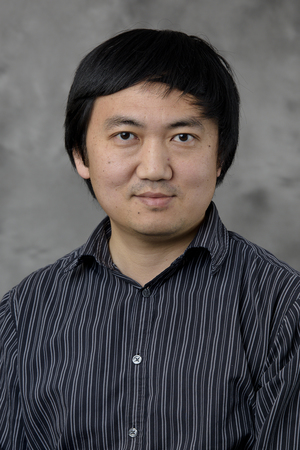From USA to Aarhus with hybrid quantum materials
Professor in nanotechnology and quantum physics Yong P. Chen from Purdue University, Indiana is to establish a significant research program at Aarhus University. The Villum Investigator Program has offered him Dkk 40 million to be used in his research at the Department of Physics and Astronomy.

Yong Chen will do experiments into hybrid quantum materials and quantum units by combining various quantum electronic and quantum photonic systems. The project, “Hybrid Quantum Materials and Devices” is described in the abstract for the application like this:
We propose an experimental program on “Hybrid Quantum Materials and Devices” with unprecedented functionalities, created by combining different quantum electronic/photonic systems, particularly various two-dimensional (2D) and topological materials featuring versatile properties, flexibility and tunability. We will focus on: 1) topological/2D material hybrids such as topological insulators interfaced with 2D superconductors/magnets; 2) quantum photonics/2D material hybrids such as quantum emitters and plasmonics systems interfaced with 2D materials (ranging from graphene to 2D semiconductors/insulators/magnets). The work could uncover new states of matter and novel physics for future electronic and quantum device applications, such as dissipationless transport for energyefficient electronics, and majorana “non-Abelions” for robust “topological” quantum computing, and offer new powerful (optoelectronic) probes and control knobs for quantum materials. Excellent synergies exist with local research groups in the hosting Aarhus University, including existing Villum Centers of Excellence on Dirac materials and on Quantum Scale Optical Processes.
The research builds on Chens extensive record and expertise in both materials/condensed matter/nano physics and atomic/optical/quantum physics, where his group has synthesized some of the highest quality topological insulators and graphene, demonstrated some of their most salient properties through transport and optical measurements, and developed novel graphene/semiconductor hybrid “phototransistors” and even new approaches for quantum optical control of photochemical reactions.

Thomas Bjørnholm, director of research for the Villum foundation explains: "We aim via long term financing to provide researchers with secure opportunities, enabling them to dig deep into whatever research areas they find most exiting, and thus to strengthen research areas that may lead to new breakthroughs and surprising results."
The Villum Foundation has granted similar amounts to four more researchers at Aarhus University. From the Department of Chemistry Bo Brummerstedt Iversen, Karl Anker Jørgensen og Henrik Stapelfeldt, and from the Department of Computer Science Lars Birkedal.
